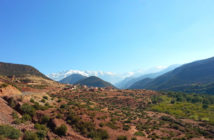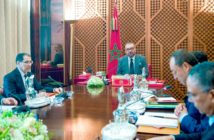
The sentencing of Egyptian-born Canadian journalist Mohamed Fahmy to seven years in prison by a court in Cairo is but one sad and alarming result of the collapse of the so-called “Arab Spring.”
What had been hoped to be an outburst of pluralism and democracy in Egypt and perhaps other Arab countries has been dashed, except in Tunisia. Elsewhere, the Arab world is mired in oil-fired autocracy (Saudi Arabia and the Gulf states), plagued by violence (Syria and Iraq), torn by internal tribal conflict (Libya) and repression (Algeria), or governed by kingships that maintain a form of internal peace (Morocco and Jordan).
What Jordanian writer and former diplomat Marwan Muasher has called the “second Arab Awakening” turned out to be a flicker that, once extinguished, found Egypt plunged back into authoritarianism, with a judicial system that has imprisoned Mr. Fahmy and two other journalists on trumped-up charges of aiding the Muslim Brotherhood.
False optimism permeated much of the early coverage of the Arab Spring. Too many Western journalists and writers believed that finally the time had come for long-suffering Arab populations to throw off their authoritarian rulers, break up cliques that had dominated regimes and economies and bring in political diversity and electoral politics.
It was not to be, for many reasons outlined clearly in a paper of sustained realism based on decades of experience by Michael Bell, a retired Canadian diplomat who served as ambassador to Egypt, Jordan and Israel. In his paper for the Transatlantic Academy, titled Liberal Attitudes And Middle East Realities, Mr. Bell explains why, despite the high hopes, “there is little tolerance for liberal pluralism” in Arab politics.
From the far right have come “neoconservatives” wanting to remake the Middle East, with the vulcans of former U.S. president George W. Bush’s disastrous government being the most obvious marauders. From the left have come “progressives,” eager to teach the ways of pluralism and democracy, convinced that if only this message be heard, the “people” of the Arab world would rise up and demand both.
Instead, Mr. Bell writes, “a multitude of issues contribute to the dysfunction of Arab Middle East polities, including traditions of colonialism, authoritarianism, the rentier state, clientalism, corruption and imagined history.”
This “imagined history” is on display today as militant Sunnis try to join parts of Syria and Iraq into a modern-day caliphate of the kind that existed many centuries ago. Or in Egypt, where the memories of past greatness contrast with modern economic infirmity and political stagnation, the gap inviting too many to live in what the late American academic Fouad Ajami once perceptively called The Dream Palace of the Arabs.
What frames political thought in Arab countries (beyond the liberal elites visiting Western columnists tend to quote) is what Mr. Bell calls ethno-nationalism and an ideological belief system. Western “reformers” of the Arab world need to temper their enthusiasm, because “overly assertive liberalism can lead to bad policy, with calamitous results when it confronts the ingrained habits of brittle societies.”
The classic example was the U.S. invasion of Iraq, which is now being shattered into national and religious parts. The same sort of fratricide is tearing at Libya, where Western forces, including Canadian air strikes, helped knock out the old regime without any sense of what could or would replace it.
“Democracies cannot exist without democrats,” Mr. Bell observes. Arab politics are rarely rooted in the acceptance of rules, the willingness to give up power and institutions guaranteeing fair process. More often than not, elections are used to legitimize elites’ control of power or to exclude others from any exercise of it, as happened in Iraq, to the delight of its Shiites and the anger of its Sunnis.
Collectivist instincts, abetted by religious rivalries, make politics more about triumph over the “other” than about an ongoing contest for political power with regular rotations in office. In some cases, no room exists for civil society because all that counts is declared fidelity to the precepts of Islam, however defined.
The blithely floated idea that the West can correct or even greatly influence this “dysfunction” is fundamentally flawed, no matter how much we might wish otherwise.






